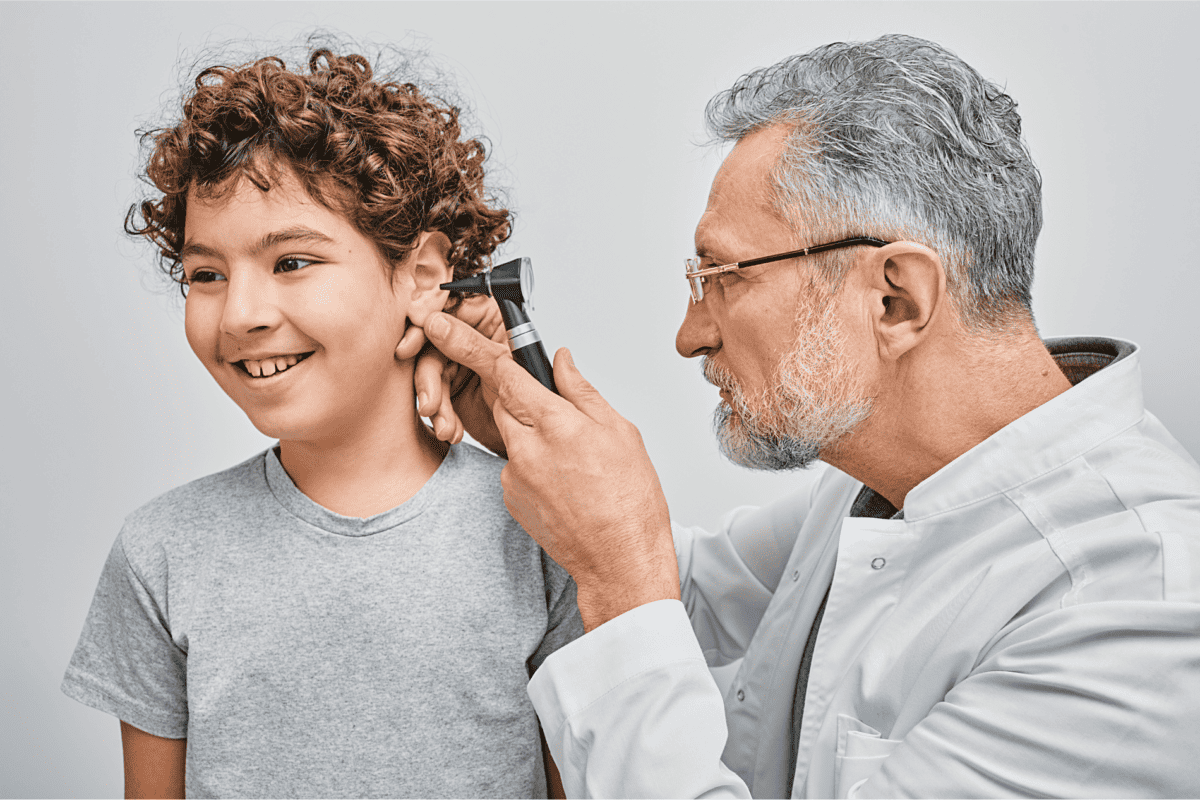- Fall TV Premieres and Using Hearing Aid Connectivity for Better Sound - October 15, 2024
- Answering Common Questions About Hearing Aids - October 5, 2024
- The Role of Artificial Intelligence in Hearing Aid Technology - September 28, 2024
Unilateral hearing loss (UHL) refers to the condition where a child experiences hearing loss in one ear while the other ear has normal hearing. While it can occur at any age, it is particularly concerning when it affects children, as it can have a profound impact on their overall development.
UHL in children can arise from various causes, including congenital conditions, infections, head trauma, or exposure to ototoxic medications.
Let’s look into how unilateral hearing loss in children affects later development, focusing on language acquisition, academic performance, and psychosocial well-being.
The following will provide valuable insights into the potential consequences of UHL, highlight the importance of early intervention and support, and list reputable sources for your perusal.
Language Acquisition
Language acquisition is a critical developmental milestone for children, and hearing plays a pivotal role in this process.
Children with unilateral hearing loss often face challenges in acquiring language skills compared to their peers with normal hearing. Several studies have demonstrated a correlation between UHL and delayed language development.
A study published in the Journal of Speech, Language, and Hearing Research by Lieu et al. (2010) examined the language development of children with UHL. The researchers found that children with UHL scored lower on various language assessments compared to children with normal hearing. The study also revealed that UHL could affect not only expressive language skills (such as vocabulary and grammar) but also receptive language skills (understanding spoken language).
This suggests that children with UHL may have difficulties in both understanding and expressing themselves effectively.
Unilateral hearing loss has consequences on speech and language development, academic performance, social interactions, and spatial awareness. It is important to identify and address UHL early to minimize the potential impact on a child’s development.
Institutional studies sources for parents
According to the American Speech-Language-Hearing Association (ASHA), unilateral hearing loss affects approximately 3 in every 1,000 children in the United States. However, prevalence rates may vary in different populations and regions.
- The American Speech-Language-Hearing Association (ASHA) provides evidence-based guidelines and research on the impact of UHL on language development, learning, and social-emotional well-being. It emphasizes the significance of early identification, appropriate intervention, and ongoing support to mitigate the potential challenges faced by children with UHL.
- The National Institute on Deafness and Other Communication Disorders (NIDCD) provides evidence-based research on the impact of UHL on auditory processing, language development, academic performance, and social interactions in children. They highlight the importance of early intervention, hearing amplification, and communication strategies to minimize the potential negative effects of UHL.
- The Journal of Pediatrics is a respected peer-reviewed journal that publishes research and provides evidence-based insights into the potential long-term effects of UHL and emphasizes the importance of multidisciplinary approaches to address the unique needs of children with UHL.
We know that UHL in children has a significant impact on their later development, including speech and language skills, academic performance, psychosocial well-being, and cognitive functioning.
Therefore, early identification, appropriate intervention, and ongoing support are crucial in minimizing the potential challenges associated with UHL and ensuring optimal development for affected children.
Empowerment
As parents, siblings, students, teachers and community members it is up to us to be active, promote hearing health education and demand resources for children with UHL to continue their formative years with as much assistance as possible,
Diagnosis and Management: Diagnosis of unilateral hearing loss is typically done through comprehensive audiological evaluations, including pure-tone audiometry and speech perception testing. Management options may include:
- Monitoring: Regular monitoring of hearing to ensure any changes or further hearing loss is detected promptly.
- Assistive Devices: Depending on the degree of hearing loss, hearing aids or assistive listening devices may be recommended to improve hearing and speech perception.
- Educational Support: Children with UHL may benefit from classroom accommodations, such as preferential seating, use of assistive technology, and communication strategies.
First steps
If you have seen any indications of UHL within your circle of friends and family, a hearing health specialist would be the best person to reach out to.
An early assessment and diagnosis is the best way to address hearing decline in any form.
We are here to take your call and schedule an appointment whenever you are ready!
https://www.ncbi.nlm.nih.gov/pmc/articles/PMC3467198/
https://www.sciencedirect.com/science/article/abs/pii/S0378595517303635

